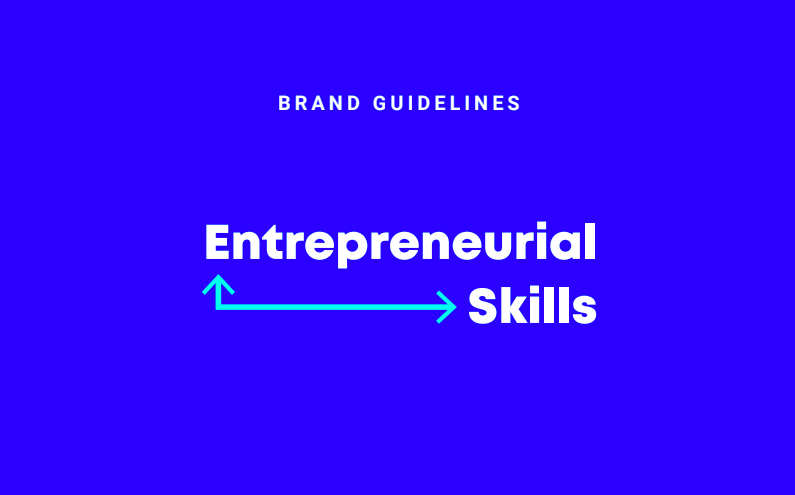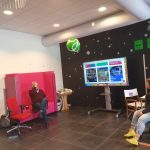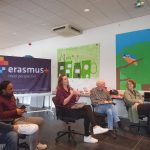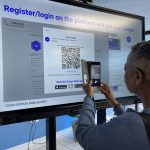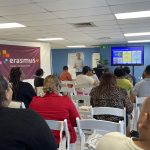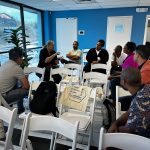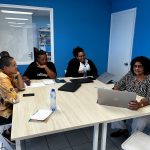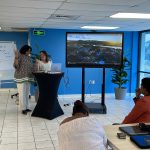Digital technology for pathways to entrepreneurial skills
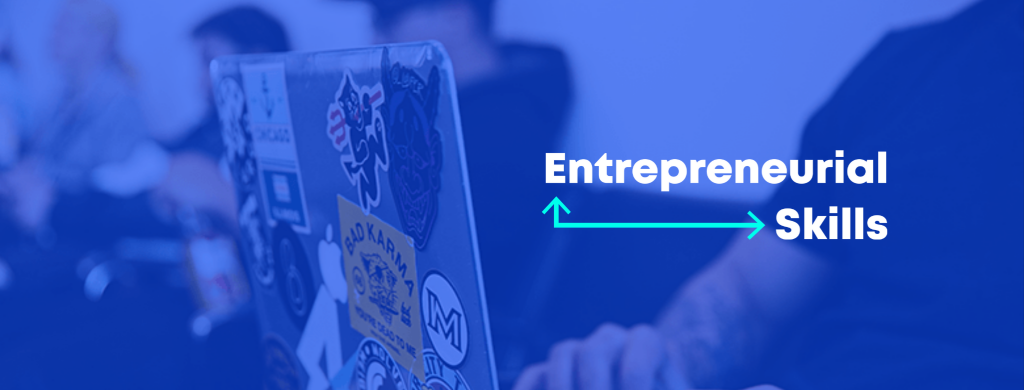
The development of the entrepreneurial capacity of European citizens and organisations is one of the key policy objectives for the EU and the Member States. The European Commission identifies entrepreneurship as one of the 8 key competencies for lifelong learning necessary for personal fulfilment, a healthy and sustainable lifestyle, employability, active citizenship and social inclusion:
Diverse European frameworks are being developed: the European Entrepreneurship Competence Framework (EntreComp), the European Digital Competence Framework (DigComp). These frameworks are linked to the European Qualifications Framework (EQF). Based on the framework, Entrecomp is several other frameworks developed like Entrepreneurial Skillspass and Pitchworthy Entrepreneurial Skills Framework.
Europass and related networks like softskills4.eu, ESCO framework (European Skills/Competences, Qualifications and Occupations) explores additional possibilities to include Open Badges opportunities. Europass will integrate Open Badges based on the EQF. In addition, the ESCO framework and NQF are based on LifeLong Learning and key competencies. ESCO includes the basic or transversal competencies. Entrepreneurial skills are part of transversal competencies.
The project “Digital technology for pathways to entrepreneurial skills” is based on competencies, qualification and endorsement frameworks, and partners will connect existing entrepreneurial adult education programmes for disadvantaged adults with fewer opportunities. They will use entrepreneurial frameworks to recognise, endorse, and acknowledge prior learning, on-the-job learning and learning in the educational programmes.
Project partners are civic-minded and socially aware of the talent of their target groups who are seeing and exploiting opportunities over and over again. Yet, very often, those adults are undermined and unrecognised by others in society who have status and resources. The consortium wants to support these enterprising adults in developing and recognising their entrepreneurial skills further and increasing their successes. Citizens with entrepreneurial skills and attitudes are needed more than ever for rebuilding the economy impacted by Covid-19.
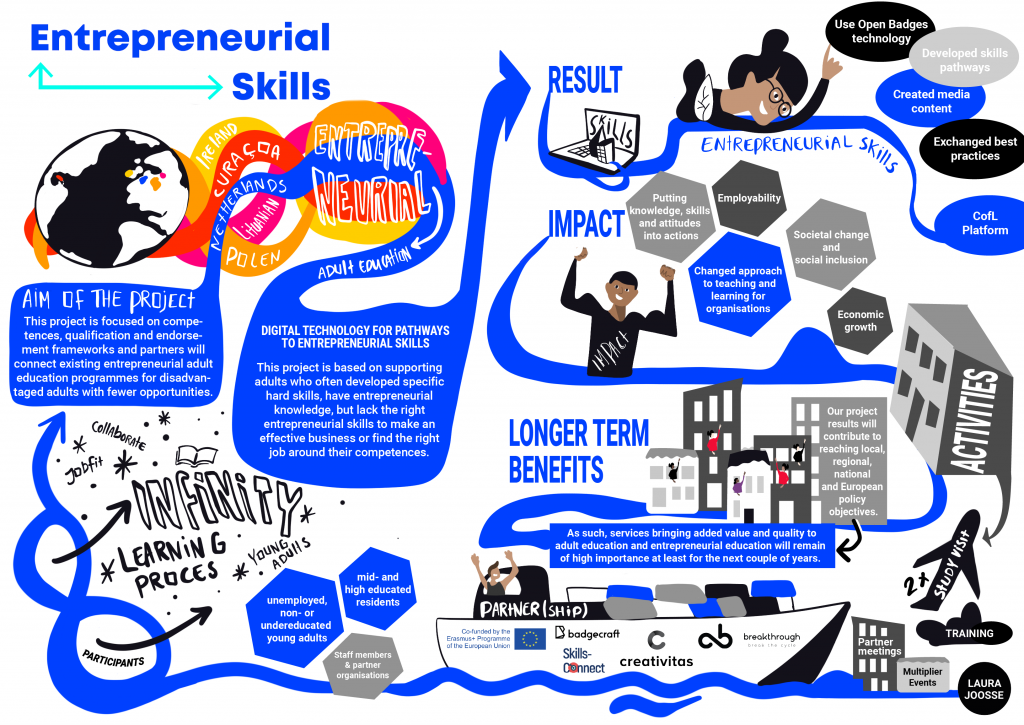
Target groups
- unemployed, non- or undereducated young adults, adults who not yet recognise their prior learning, have an entrepreneurial attitude and need better guidance to become entrepreneurs;
- refugees who are mid- and high educated residents and newcomers, but they lack the right certificates to enter the labour market;
- staff members of adult education organisations.
Aims and objectives
- To develop the capacity of partner organisations to use Open Badges technology to assess, validate and recognise entrepreneurial skills and attitudes of adult learners;
- To develop endorsement schemes for adult education programmes, especially for adult learners with fewer opportunities;
- To create new adult learning opportunities by utilising and developing digital technology solutions available on the Cities of Learning platform;
- To promote new adult learning opportunities in participating countries and at the European level.
Partners: Breakthrough (leading partner, NL), Youtopolis (RO), Badgecraft Ireland, Skills-Connect (NL) and Creativitas (LT).
The project is funded by the European Union through the ERASMUS+ programme. Disclaimer: The European Commission’s support for the production of materials below does not constitute an endorsement of the contents, which reflect the views only of the authors, and the Commission cannot be held responsible for any use which may be made of the information contained therein.

In the implementation of adult education programs, project partners identified a need to learn from good practices of how to map, assess, validate, and recognize entrepreneurial skills of adult learners, especially those with special needs. The partners selected specific adult education programs where they saw a need to improve practices by developing digital pathways to entrepreneurial skills. The recent development in education technology required adult education to update tools, methods, and practices, especially integrating digital technology solutions.
The partners identified several areas where the need for improvement was mostly required:
- (Self-)assessment and validation of prior learning and practical experiences in the area of entrepreneurial competence
- Digital content and resources to develop and recognize entrepreneurial skills of adult learners
- Methods, tools, and good practices working with disadvantaged adult learners with fewer opportunities
- Multilingual solutions for digital tools to support learning and recognition of adult learners.
The above needs were based on the work of project partners implementing adult education programs. Feedback of participants and adult educators was taken into account when elaborating needs for these new developments. The trends of digital technology development, especially digital Open Badges, suggested that such digital solutions could be beneficial to address the needs of adult learners.
The playlists for exercising entrepreneurial skills listed below are designed for different target groups, such as refugees, employees, students, and entrepreneurs. They provide a range of activities that can be completed at different levels of difficulty, from introductory to advanced. Some of the playlists focus on specific areas of entrepreneurial learning, such as idea generation, self-awareness, financial management, and networking.
One example of an activity in the playlist is “Ideas and opportunities“, which is designed to help participants generate and evaluate business ideas. Another activity, “The entrepreneurial resource box“, provides participants with a set of tools and resources to start and grow a business. “Self-awareness and self-efficacy” is an activity that helps participants develop their self-awareness and self-confidence, which are essential for entrepreneurial success.
The playlists also offer opportunities for participants to exchange experiences and learn from each other. For example, “Exchanging practices” allows participants to share their best practices and learn from others’ experiences. “Into action” is an activity that helps participants translate their ideas into action and develop an entrepreneurial mindset.
Innovation: Digital Open Badges offered flexible solutions to map, validate, and recognize skills developed as a result of prior learning and practical experiences, as well as visualize pathways to entrepreneurial skills development. Yet, none of the partners who delivered adult learning programs focused on entrepreneurial skills used this digital technology for the benefit of adult learners. By creating digital skills pathways, the partners were able to improve their adult learning programs. Special attention was focused on delivering improvements on the following aspects:
- Identifying and validating prior learning and practical experiences in the area of entrepreneurial competence of adult learners
- Mapping, visualizing, and recognizing pathways to entrepreneurial skills development in existing adult learning programs offered by partners
- Adapting digital technology solutions to support disadvantaged adult learners with fewer opportunities
Impact: Adult learners benefited from a possibility to become aware and be acknowledged for their entrepreneurial skills that they had as a result of their prior learning and practical experience. By using digital skills pathways, they were able to better know what entrepreneurial skills they had and which ones they needed and could develop by joining adult learning programs. Adult learners were able to create their digital portfolios with Open Badges showing which skills they were equipped with as a result of prior learning, practical experiences, and participation in adult learning programs. Adult educators had reference tools to support adult learners in assessing and identifying skills. They were able to offer digital solutions of Open Badges which were used across education, training, business, and employment sectors globally. Managers of adult learning programs were able to collect and analyze data about the impact of assessing and developing entrepreneurial skills. This data was useful to evaluate the impact of specific adult learning programs and take decisions about necessary improvements of quality. The partner organizations were able to improve the quality of programs offered to adult learners by being able to better communicate value propositions to learners, assess prior learning and skills, monitor implementation progress of specific programs, use data for evaluation and reporting.
Methodology: the project followed a design thinking methodology to create and implement digital pathways to entrepreneurial skills. Design thinking involved cycles of researching, ideating, prototyping, testing, improving, and implementing innovative solutions. Each step in this cycle could be repeated until the solutions satisfied the initially set goals and anticipated results.
Skills pathways were another methodology used in the development of this intellectual output. Skills pathways provided a way to map, visualize, and implement non-linear learning, which is particularly relevant for adult learning programs implemented in a modular way. Skills pathways combined the assessment and validation of prior learning, practical experiences, and the completion of specific parts or entire programs.
In this project, digital Open Badges and the digital technology available on the Cities of Learning platform were used to build digital pathways to entrepreneurial skills in adult learning programs. The digital pathways included:
- Digital content related to the specific program.
- Video materials, infographics, and graphics.
- Online and offline resources and materials.
- Digital Open Badges with their descriptions, criteria, and evidence assessment flow.
- Dependency relations between content, activities, and badges in a skills pathway.
The partners implementing adult education programs lacked formal endorsement systems for skills, relying on verbal agreements or having no endorsement process in place. However, through this intellectual output, partners were able to develop and implement endorsement schemes for their adult education programs using digital technology solutions available on the Cities of Learning platform.
The main focus of this output was on creating effective communication strategies, enhancing visibility, and developing a dissemination strategy to engage potential endorsers in the field.
Impact: The introduction of endorsement schemes allowed adult learners to access new opportunities for networking, internships, meetings, and knowledge exchange with entrepreneurs within their local communities. Real-life connections and experiences are crucial for the development of entrepreneurial skills, particularly for adults with special needs who require additional support and encouragement to pursue self-employment, freelancing, or entrepreneurship.
By utilizing endorsement schemes, adult educators were able to easily guide adult learners towards real-life opportunities beyond the activities offered within adult education programs. This expanded the horizons for adult learners and provided them with a broader perspective on applying their acquired skills in practical settings.
Additionally, adult education organizations were able to establish and strengthen partnerships with endorsers at the local level, making their adult education programs more appealing to potential learners. Bridging the gap between the adult education field and the business world created valuable connections and contributed to the application of learned skills in real-life scenarios.
Transferability: The developed endorsement schemes and their successful implementation in the project partner’s adult education programs were thoroughly documented. This documentation was compiled into a digital publication, serving as a repository of good practices for creating endorsement schemes for entrepreneurial skills in the field of adult education. Other adult education organizations can access and utilize these good practices to enhance their own endorsement systems and promote entrepreneurship in their respective contexts.
Endorsement allows external organisations to publicly indicate that the badge issuer program and badges align with their values and standards, those that are the most meaningful and useful to them. Explore how to use badge endorsement features for your benefit.
The implementation of a technical innovation on the Cities of Learning platform has been successfully completed. Previously, the platform offered functionalities such as activities, playlists, and badges. However, it lacked the necessary features to establish skills pathways using multiple badges and define their dependencies and issuing criteria.
The introduction of skills pathways on the platform now enables adult education organizations to map prior learning and offer badge-based pathways within their adult education programs. This technical enhancement provides a structured and comprehensive approach to skills development.
Furthermore, the newly added endorsements functionality establishes a connection between adult learners and real-world opportunities to further develop their entrepreneurial skills and capacities. By leveraging endorsement schemes implemented in local communities, adult learners can access valuable resources and experiences beyond the confines of their education programs.
To support users in making the most of the new functionality, video tutorials have been developed, providing guidance on utilizing the enhanced features.
Impact: Adult learners will greatly benefit from earning digital Open Badges, which serve various purposes, including:
- Validating prior learning, skills, and experiences relevant to entrepreneurial competence.
- Visualizing pathways and ongoing development of entrepreneurial skills offered by adult education programs.
- Connecting their skills with opportunities through endorsement schemes implemented in local communities.
Partner organizations will have the opportunity to integrate and utilize up-to-date technical solutions, supporting the implementation of new opportunities within their adult education programs.
Furthermore, any adult education organization potentially can access these digital solutions on the Cities of Learning platform to improve the quality of their adult education services.
Transferability: This technical innovation will be applied in the adult education programs implemented by the partners of this project. By adopting this innovation, they will be able to implement the validation of prior learning and ongoing development of entrepreneurial skills in their adult education programs. Additionally, the partners will be able to implement endorsement schemes with their local partners and stakeholders.
Given that the Cities of Learning platform is utilized in more than 14 other cities and regions, the new platform development will become available to other organizations, cities, and regions using the platform. This widespread availability will be beneficial to all organizations and learners currently and in the future. Moreover, the global version of the platform, accessible at https://global.cityoflearning.eu, allows any organization worldwide to access the platform’s functionalities, including the new developments resulting from this project.
Short-term joint staff training events were organized in Romania, the Netherlands, and Lithuania as part of the project’s activities. These training events aimed to bring together staff members from partner organizations and create a collaborative learning environment.
Read more:
At the beginning, a brandbook, communication strategy and guidelines were developed by Craetivitas (LT) to provide partners with visual materials and ensure consistent communication, establishing a distinct presence among other initiatives.
Creativitas (LT), as the communication partner of the project, played a crucial role in taking the lead in developing a comprehensive communication strategy. The strategy aimed to ensure effective communication about the project at different levels and provide clear guidelines for partners to promote and share information about the project on a local level.
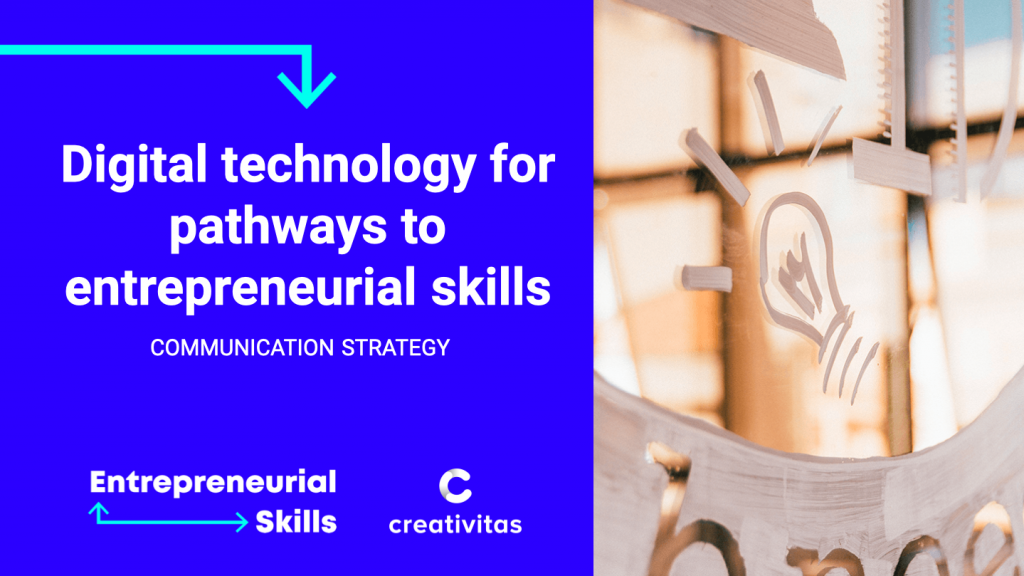
At the European level, it was decided to leverage the existing channels of Cities of Learning, a renowned platform dedicated to promoting learning opportunities. By utilizing these channels, the project could reach a wider audience and disseminate information about its objectives, outcomes, and activities. Additionally, the project aimed to expand its reach by utilizing EPALE channels, which specifically cater to the field of adult education. Through these channels, the project sought to engage with stakeholders in the adult education community and foster discussions about innovative approaches to learning.
One notable achievement of the project was the recognition it received through the EntreComp Awards. This platform showcased and celebrated projects that excelled in promoting entrepreneurial skills. The project’s achievements were showcased during the awards, further enhancing its visibility and credibility within the entrepreneurship and adult education communities.
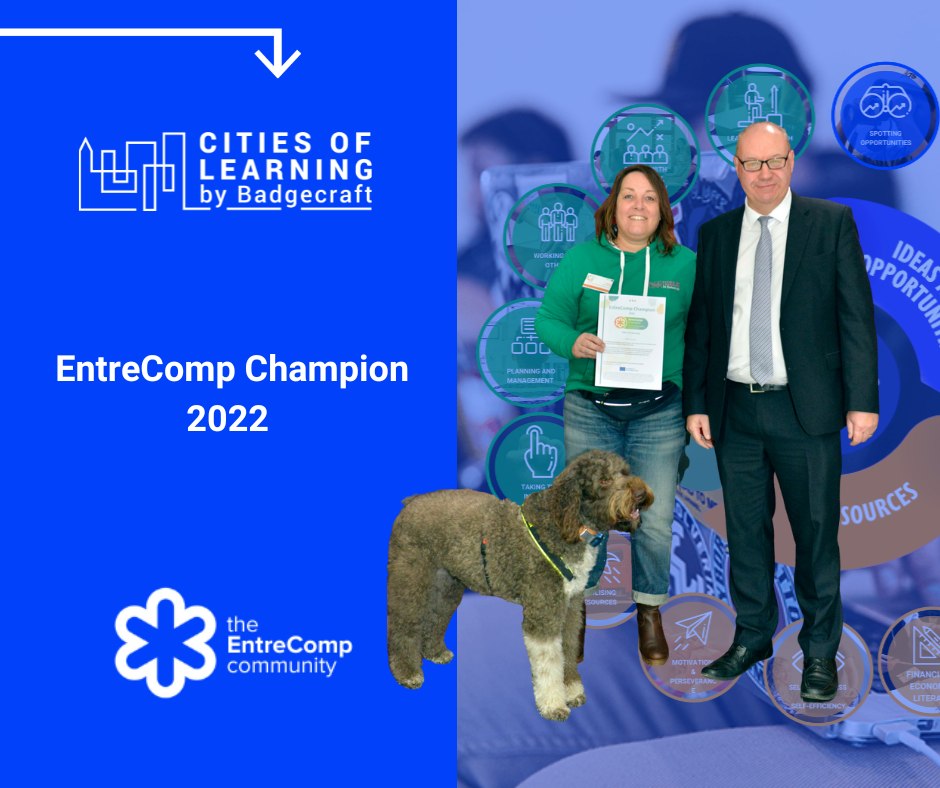
Recognizing the importance of local-level communication, each partner took the responsibility of creating their own specific lists of communication channels. This approach allowed partners to tailor their communication efforts to the local context, ensuring effective dissemination of project-related information to their respective target audiences. By engaging with local channels, such as educational centers, companies, media outlets, and public bodies, partners aimed to raise awareness about the project and encourage participation from adult learners, educators, experts, and other stakeholders.
Through a series of multiplier events held in Romania, the Netherlands, and Curacao, the project aimed to promote innovative approaches to adult education and validate the diverse skill sets of learners. In this blog post, we will provide an overview of these remarkable events and their impact on adult learners and education providers.
- A Tailor-made Pathways for Adult Learners (Romania): The event held in Romania brought together a diverse group of stakeholders, including adult learners, educators, experts, and representatives from local partners and public bodies. The conference showcased the project’s Intellectual Outputs, emphasizing the importance of Open Badges and the Cities of Learning platform. Attendees gained insights into the objectives and outcomes of the project, inspiring them to explore new avenues for adult learning programs. The event fostered collaboration and encouraged the use of digital technologies to enhance skills validation and recognition.
- Building Your Future with Digital Credentials for Lifelong Learning (Netherlands): The international multiplier event held in the Netherlands focused on promoting lifelong learning and the utilization of digital credentials. With a particular emphasis on entrepreneurial skills, the event brought together adult learners, local organizations, educational institutions, and business entities. Presentations highlighted the role of digital credentials in closing the skills gap, while also emphasizing the importance of resilience, social inclusion, and new citizenship. Attendees were encouraged to leverage recognition tools like Open Badges and the Cities of Learning platform to build their future through continuous learning.
- Adult Education and Entrepreneurial Skills at the Caribbean (Curacao): The final conference in Curacao served as a platform to promote the Intellectual Outputs of the project and explore future prospects for adult education. Participants included adult learners, educators, trainers, mentors, and representatives of local stakeholders. The event facilitated discussions on adult learning programs, skills validation, recognition, and the effective utilization of digital technology. By showcasing the benefits of the Cities of Learning platform, attendees were empowered to deliver high-quality adult learning programs that catered to the needs of disadvantaged adults with limited opportunities.
The multiplier events held within the project made significant strides in empowering adult learners and transforming adult education practices. Through the promotion of Intellectual Outputs and the use of digital technologies, pathways to success were unlocked for learners around the world. The events served as a catalyst for collaboration, knowledge sharing, and the adoption of innovative approaches to validate and recognize prior learning. As the project’s outcomes continue to make an impact, it is evident that the journey towards empowering adult learners has only just begun.
We would like to invite you to join our vibrant community and stay connected with us through multiple channels. By following us on Facebook and LinkedIn, you’ll gain access to our latest updates, valuable content, and engaging discussions. Additionally, we highly recommend subscribing to our newsletter, where you’ll receive regular updates delivered directly to your inbox. Our newsletter is a convenient way to stay informed about our projects, initiatives, events, and opportunities. Don’t miss out on the chance to be part of our community and stay up-to-date with the exciting things happening.


